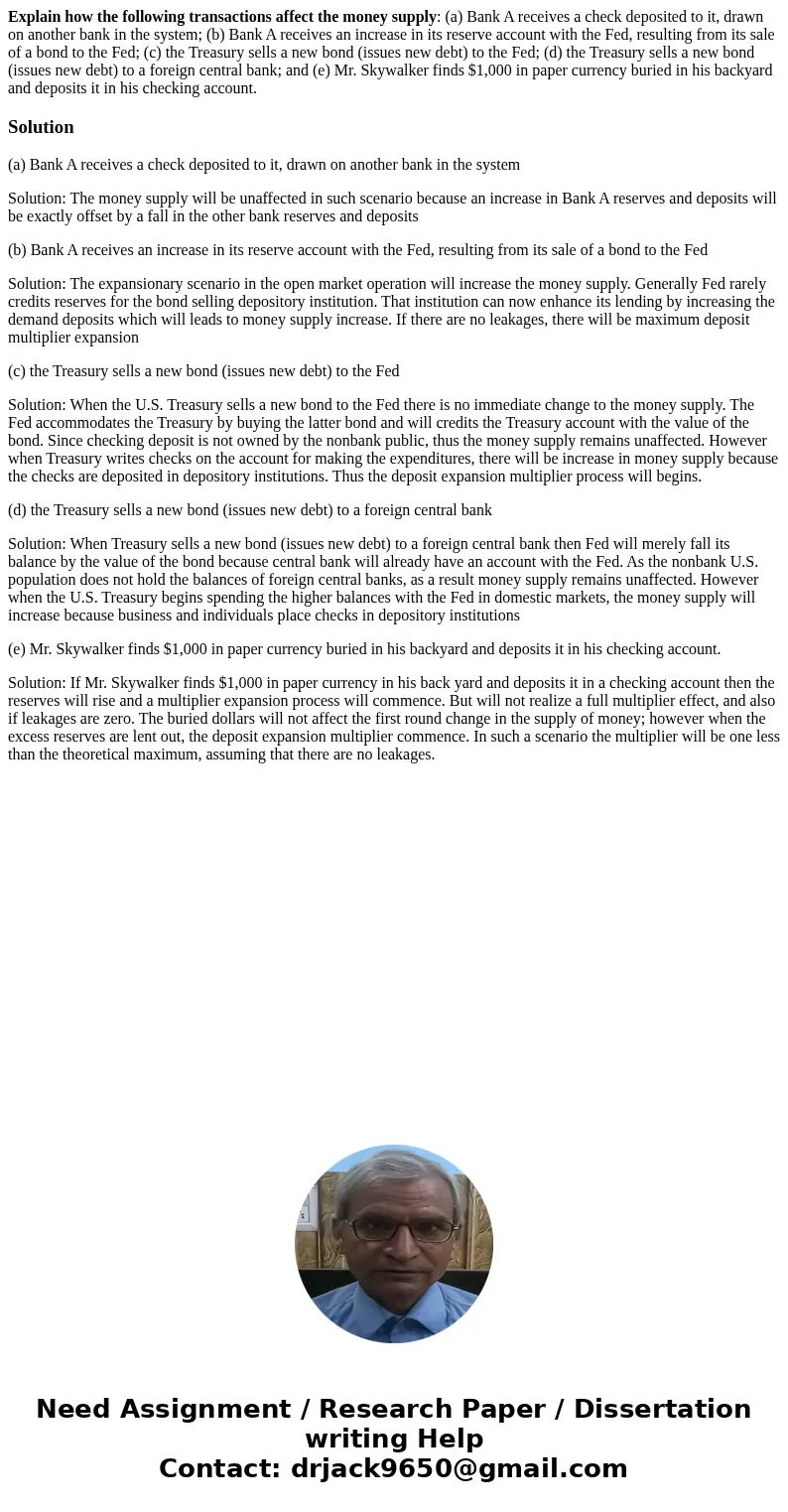Explain how the following transactions affect the money supp
Explain how the following transactions affect the money supply: (a) Bank A receives a check deposited to it, drawn on another bank in the system; (b) Bank A receives an increase in its reserve account with the Fed, resulting from its sale of a bond to the Fed; (c) the Treasury sells a new bond (issues new debt) to the Fed; (d) the Treasury sells a new bond (issues new debt) to a foreign central bank; and (e) Mr. Skywalker finds $1,000 in paper currency buried in his backyard and deposits it in his checking account.
Solution
(a) Bank A receives a check deposited to it, drawn on another bank in the system
Solution: The money supply will be unaffected in such scenario because an increase in Bank A reserves and deposits will be exactly offset by a fall in the other bank reserves and deposits
(b) Bank A receives an increase in its reserve account with the Fed, resulting from its sale of a bond to the Fed
Solution: The expansionary scenario in the open market operation will increase the money supply. Generally Fed rarely credits reserves for the bond selling depository institution. That institution can now enhance its lending by increasing the demand deposits which will leads to money supply increase. If there are no leakages, there will be maximum deposit multiplier expansion
(c) the Treasury sells a new bond (issues new debt) to the Fed
Solution: When the U.S. Treasury sells a new bond to the Fed there is no immediate change to the money supply. The Fed accommodates the Treasury by buying the latter bond and will credits the Treasury account with the value of the bond. Since checking deposit is not owned by the nonbank public, thus the money supply remains unaffected. However when Treasury writes checks on the account for making the expenditures, there will be increase in money supply because the checks are deposited in depository institutions. Thus the deposit expansion multiplier process will begins.
(d) the Treasury sells a new bond (issues new debt) to a foreign central bank
Solution: When Treasury sells a new bond (issues new debt) to a foreign central bank then Fed will merely fall its balance by the value of the bond because central bank will already have an account with the Fed. As the nonbank U.S. population does not hold the balances of foreign central banks, as a result money supply remains unaffected. However when the U.S. Treasury begins spending the higher balances with the Fed in domestic markets, the money supply will increase because business and individuals place checks in depository institutions
(e) Mr. Skywalker finds $1,000 in paper currency buried in his backyard and deposits it in his checking account.
Solution: If Mr. Skywalker finds $1,000 in paper currency in his back yard and deposits it in a checking account then the reserves will rise and a multiplier expansion process will commence. But will not realize a full multiplier effect, and also if leakages are zero. The buried dollars will not affect the first round change in the supply of money; however when the excess reserves are lent out, the deposit expansion multiplier commence. In such a scenario the multiplier will be one less than the theoretical maximum, assuming that there are no leakages.

 Homework Sourse
Homework Sourse